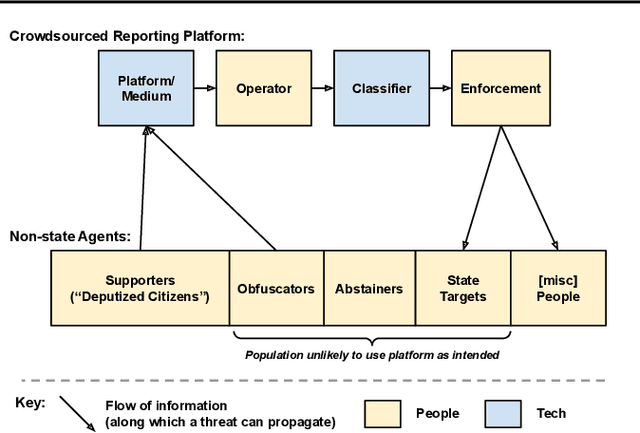Collective Obfuscation and Crowdsourcing
Paper and Code
Aug 12, 2022



Crowdsourcing technologies rely on groups of people to input information that may be critical for decision-making. This work examines obfuscation in the context of reporting technologies. We show that widespread use of reporting platforms comes with unique security and privacy implications, and introduce a threat model and corresponding taxonomy to outline some of the many attack vectors in this space. We then perform an empirical analysis of a dataset of call logs from a controversial, real-world reporting hotline and identify coordinated obfuscation strategies that are intended to hinder the platform's legitimacy. We propose a variety of statistical measures to quantify the strength of this obfuscation strategy with respect to the structural and semantic characteristics of the reporting attacks in our dataset.
 Add to Chrome
Add to Chrome Add to Firefox
Add to Firefox Add to Edge
Add to Edge